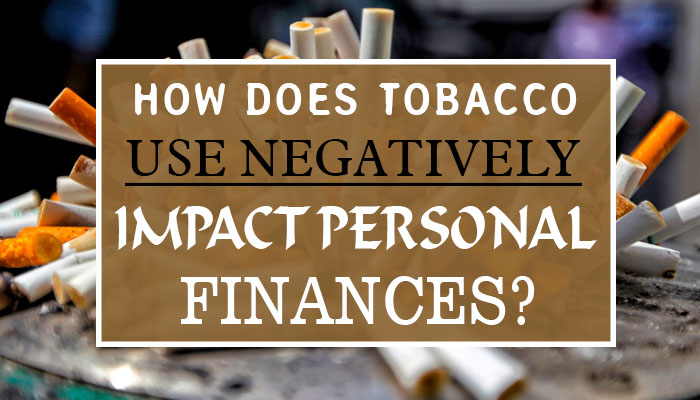Tobacco is a plant grown for its leaves, which are dried and fermented before being put in tobacco products. Tobacco contains nicotine, an ingredient that can lead to addiction, which is why so many people who use tobacco find it difficult to quit. There are also many other potentially harmful chemicals found in tobacco or created by burning it.
Consequences of smoking cigarettes on one’s finances:
Employees are more worried than ever about their future and current financial situations due to layoffs, reduced hours, expensive medical expenditures, and the stacking of unpaid rent and mortgages in the wake of COVID-19.
Nearly two-thirds of employees say their financial hardship has increased since the start of the pandemic, according to a 2021 financial wellbeing poll from PwC. Nearly four times as many survey participants who stated that their financial stress had increased were willing to confess that their finances had distracted them at work.
Helping employees cut back on out-of-pocket expenses is one aspect of financial health that is less frequently considered. These possible savings when someone gives up cigarettes include no or lower spending on:
Tobacco. Because of taxes, cigarette prices vary from state to state, but they are still a large outlay of money. The most expensive pack in New York costs $10.45, or $313.50 per month if a smoker smokes a pack a day. Employees will still save thousands of dollars a year by leaving, even at a lower average per-pack rate.

When someone stops smoking, their health quickly improves. Their heart rate slows after the final cigarette. After quitting, the chance of having a heart attack dramatically decreases in 1 to 2 years. Stroke risk reduces and the likelihood of acquiring mouth or throat cancer is cut in half after 5 to 10 years.
fewer glaring costs. So how can smoke harm one’s finances? It is well known that tobacco use results in healthcare costs and purchase prices. However, some costs associated with using tobacco may go unnoticed and accumulate over time causing users to suffer financially.
FAQs:
What financial effects does smoking have on a person?
Smoking households are twice as likely as non-smoking households to suffer financial distress stress (such as going without food and being unable to heat their home). 1 Spending money on cigarettes may be put toward purchasing meals, school uniforms, or essential household things like a new refrigerator.
What are the harmful social effects of using tobacco?
The majority of studies have emphasized nicotine toxicity. The social repercussions of tobacco production include economic loss and social unrest in regions where tobacco products are increasing as well as in communities where it is diminishing (joblessness) (loss of local food production and local autonomy).
How does smoking influence how we make decisions?
Smokers’ different decision-making behavior in the current study and the other studies mentioned above can be explained by the claim that they consistently show less self-control, which causes them to make decisions that are frequently rewarding but occasionally dangerous.
Do cigarettes lead to poverty?
A family where one or more parents smoke will have a much greater financial hit. Smoking results in poorer financial security and a higher chance of poverty in addition to immediate financial hardship.

